Rock ‘n’ roll Hall of Fame inductee, Ricky Byrd, formerly of Joan Jett and The Blackhearts, is on a mission to “carry the torch of change surrounding the stigma of drug and alcohol abuse”. Clean and sober since September 25th 1987, Ricky has plenty of experience, strength and hope to share with recovering people around the world. He is founder of Ricky Byrd’s Clean Getaway Foundation and Musical Director of the Clean Getaway All-Star Band, which he set up to spread the message of hope and awareness to addicted people and their families, using music as a way to help them heal.
Ricky’s resume is pretty impressive when it comes to his music career. He performed, recorded and/or toured with Roger Daltrey, Ian Hunter, Southside Johnny, Paul McCartney, Ringo Starr, Joe Walsh, Mavis Staples, Billy Squier, Darlene Love, Ronnie Spector, Brian Wilson, Steve Miller, Graham Nash, Don Felder, Alice Cooper, Bruce Spingsteen, Steven Van Zant, Mick Taylor, Dion, Elvis Costello, Bonnie Bramlett, Billie Joe Armstrong, Bill Medley, Paul Shaffer – the list goes on. Whether it’s through Concert Events, Music Outreach Sessions or Early Education and Prevention programs, everything Ricky does is filled with passion and love for clean and sober living.
Nicola: So tell me about your foundation Ricky and what you hope to achieve with it.
Ricky: The foundation is called Ricky Byrd’s Clean Get Away and we will be doing two variables. One will be acoustic, where I put my recovery troubadour hat on and basically I’ll be doing the songs that I do with the groups at Sunrise Detox twice a week. And the other side is I’ll be doing a full scale rock ‘n’ Roll show with the Getaway All-stars to raise money and awareness for different facilities that need it.
Nicola: I listened to some of your acoustic songs that you sing on your website and they are just amazing. I couldn’t pick a favorite. I just love the quality of your voice.
Ricky: Thank you so much. The back story to that is once we complete the foundation we’ll do a complete record. Every time I play these songs at the various detox centers my brain is always thinking – oh it’d be great to have a keyboard over here and another guitar over here. So what I did was I went in the studio and turned the mike on and recorded them live just like I do in the music groups. All those years of drinking Jack Daniels did something other than getting me messed up. It left my voice kind of rough and ready.
Nicola: Who might we expect to see in your Clean Getaway All-Stars lineup.
Ricky: Well there’s a long list which includes Rickie Supa, Christine Ohlman, Kasim Sultan, Liberty Devitto, Damon Johnson – all who have extensive music careers, but there’s lot’s more.
Nicola: Part of your plan for the foundation is an early education and prevention program which is really cool. I always think we don’t focus enough on the prevention of addiction. What does that entail?
Ricky: Yeah, we are still finalizing the setting up of this foundation. I’ve been talking about it for a year but there’s so much work getting it off the ground. The website is up and we did one benefit last September for a treatment center in Connecticut. But now it’s going. Because of my own track record getting into drinking and drugs at an early age and the fact I have a fourteen year old daughter, the early education and prevention is really important to me. I just showed my daughter something on Facebook the other day, which was a post from a mother who lost her beautiful daughter to heroin addiction. She started using in high school. My kid is a freshman in high school and I started getting high when I was thirteen. So I think two things have to happen.
First we have to go into schools and start talking honestly and openly with the kids about the reality of addiction. There is something that I found out – and it’s not to take anything away from professionals and recovery specialists, and it’s not coming from an egotistical place, but being someone who is part of the rock ‘n’ roll world, gives me a key to unlock a door that might not otherwise be opened. Even though some of these kids are young and may not necessarily know who I am, everybody knows the song “I love Rock & Roll”, and mentioning some of the people I’ve played with makes them pay attention. And I’m not preaching to them. I have real first-hand experience. And I tell them if you want to see me roughed up look at some of the videos from 1983. And it’s so different now than how it was when I was thirteen. I started having a joint here and there when I was drinking and it progressed because I’m an addict. But these day’s kids are coming into school with a bag full of oxys and then it’s a quick jump to heroin.
The second thing is I want to talk to parents. Because of the fact I do these music groups twice a week and I’m in contact with the patients – I hear all the time about the misunderstanding of what addiction is. Some families have never had any experience of it and they may view it still as a weakness. And it is starting to change because there are so many people dying its shocking and people are becoming aware. But parents really need to know what this is and most of the time they don’t know what to do about it.
I read a story to the patients when I feel the time is right, because it’s pretty heavy. It’s called what you wear to a funeral to bury your son. Somebody sent it to me and it’s really touching. So the kids need to know about the collateral damage. Thy have no idea what it’s like for the parents when they coming knocking on the door at 3am begging for fifty dollars – and the parents don’t know if they should give it to them to stop them from hurting or call the police. So parents and kids need to be educated simultaneously about this disease.
Nicola: So when they see a sober Rock n Roller it sends the message that life is fun without drugs and alcohol?
Ricky: Right. Through the music I want to show these kids reality, but also that there’s hope and that life is just beginning for them. And let’s face it – you can’t stop them from being teenagers and experimenting. But if they are armed with real firsthand information then they can make educated choices. And they don’t know which one from their group of friends is the addict you know? And they don’t know if it’s them. They need to know about the addiction gene and all the reasons they can become that addict.
Nicola: I always describe my first experience with alcohol feeling like the gods coming down from heaven and rescuing me from myself.
Ricky: And that’s exactly it! And they need to understand why it is that they feel that intensity. It’s not just about the substance. It’s also about the circumstances we live in and our biological makeup and all that stuff they may never hear about. And it’s those things that turns that addiction switch on. And even when you tell them that, some of them will have to go through the process to believe you – which is unfortunate.
Nicola: Did musicians influence you when you were growing up?
Ricky: Of course. And I have all my old music magazines from when I was young. And looking through them I realize that all of them were drug addicts and alcoholics – which goes to show how popular culture plays a huge part in the development of kids. And I bought into that sex, drugs and Rock n Roll idea. But as Steven Tyler says, if you take the drugs out of the equation, it leaves a lot more time for the other two. And now my music has never been so good in all my years of being a musician.
Nicola: And what a great message for young people – life is just better without the drugs and alcohol.
Ricky: Absolutely. But then you’ll get some wiseass kids who will come back to you and say “yeah but look at all the great songs Keith Richards wrote when he was on heroin” or something.
Nicola: So how do you get past that one?
Ricky: Well the music comes from a different place. And if they came up with such awesome music while high – imagine what they could have done clean and sober! But there will always be kids you can’t get through to. However, if you manage to get inside the head and heart of even one, then you’ve done your job.
Nicola: I was in Washington DC this past October for the Unite To Face Addiction Rally and I heard politician after politician talk about what they were going to do to help the addiction epidemic. Do you think that a solution and prevention can be achieved if pharmaceutical companies and doctors are not being scrutinized about the drugs that they are producing and prescribing so freely? You talked earlier about how kids are now taking bags of prescription pills to school that are so readily available. Surely that would be a huge part of the prevention of mass drug addiction in any country?
Ricky: I didn’t go to that event because I do my music groups twice a week, and to me that was more important. Like what if I didn’t turn up to that group and someone needed to hear the message I have. And of that group of twenty five or so kids, some of them are going to die. And I got so obsessed with that thought I didn’t go to DC.
Nicola: That’s what’s called having a conscience right?
Ricky: Right! Which can be rough sometimes but I have to do what my gut tells me is right. And to answer your question – there’s always going to be unscrupulous people ready to make an extra buck. It’s such a convoluted process and it’s all about how it’s been sold and marketed to the doctors. A lot of these pharmaceutical companies lied about the addictive properties of prescription pills. And peoples’ attitude in America is that there’s a pill for every ailment and it needs to be fast and effective. Gone are the days of putting ice on an injury and getting over it. Even the smallest, simplest things are being treated with chemicals. But in my experience every doctor has their own policy on what they prescribe to who. Some will only prescribe oxy to cancer patients. Others are not so strict. So there’s all these situational influences going on it’s hard to pinpoint where the problem starts.
But you know – I tell the people in my group that none of that has anything to really do with you personally getting high. I try to make them see that they are the source of profits for these big companies, so they can choose to be that or not. Nobody has to use anything. And that’s the recovery part. It starts and ends with the choices we make for ourselves.
Nicola: So why is the message still not getting through despite all the death and devastation?
Ricky: Well I believe that it’s a trickle down effect of the society we live in today. Despite what we tell kids they still need structure, guidance and rules in their everyday lives. There are more kids with both parents who spend their lives working all day every day because they have to, just to afford the basics. There’s no time for family, or discussion or guidance. And of course there was drugs and alcohol always, but today there are so many added pressures and dynamics that family and society has broken down in a large amount of cases. Back in the sixties kids used drugs as part of rebellion. It was about not being like your parents. Now there’s all these added factors and pressures that push kids towards addiction that they have no control over. But you see kids coming from millionaire homes becoming addicts and kids from the other end of the spectrum too.
Nicola: So really life has become so overbearingly complicated that more and more are turning to addiction?
Ricky: Yes I would agree with that. And that’s why I love Twelve Step recovery. Its grassroots stuff. Real connection, but simple connection. And it works. And there’s no money involved except for the dollar you donate to keep the meetings going. I mean how much purer can you get than the concept of one alcoholic or addict helping another. And I’m not saying that there’s not issues with it. But the concept is timeless and pure. And whenever there’s money involved there’s always going to be a percentage of people who will look to take advantage of that. And as they say there’s a little larceny in everyone.
And so that’s why, despite all the crap that goes on around the world and in the recovery community, the point is that I can only help one kid at a time. Getting one kid changing direction leads to another and another.
And you get all sorts of statistics saying Twelve Step doesn’t work but it’s usually from people who have no experience of it or that quit meetings or whatever. And people will spit out all these statistics about Twelve Step not working. But I can tell you I know at least a hundred people with over twenty year’s recovery because they keep working that program. And that’s my experience and if kids want to go to another program I say cool – do that. It’s whatever works for you personally. Twelve Step works for me.
Nicola: It’s not something we can ever take for granted right?
Ricky: Never. Even after my twenty eight years of recovery I cannot take chances with this. And why would I want to? I have no need to drink. I don’t want to drink. I’ve found a life that goes beyond any of that. So I have to protect this way of life.
Nicola: What made you decide that you wanted to get recovered?
Ricky: Well I started at thirteen drinking and smoking pot and it progressed to everything. I dabbled in heroin but mostly mixed it with cocaine. But cocaine was my main source of happiness and despair. Well I should say the first two hits were happiness and then the rest was despair. And I continued from thirteen to thirty one. I was touring with Joan Jett and The Black Hearts and had started getting into freebasing cocaine and my lung collapsed. I was on stage and I collapsed. That was in 1982. When they got me to the hospital they told me I had only minutes to spare before I had a massive heart attack. That should have been my bottom. But I continued. And in 1987 a doctor told me I had the beginning of emphysema. And so he told me I couldn’t smoke pot anymore and I completely freaked out. And then I got completely addicted to any pills I could get my hands on. I was so frightened of living life straight. I had to have something. So really from 1983 to 1987 was when things really hit the bottom of the basement for me. By the end I was weighing 128 pounds, doing tons of cocaine whenever I could, popping pills and of course it wasn’t long before I was smoking pot again and drinking throughout.
I went to a wedding in 1987 and the first thing you do as an alcoholic or addict is look for someone who has something. So I went to the bar to get a drink and sat down beside someone I used to use with. My two favorite words were “you holding?” And she said no no, I go to this twelve step thing now and before she could get the sentence out I was like “good for you” and went to find someone else.
But what she said to me planted a seed. And then later on a night that wasn’t even a bad using night for me, I was standing in front of a mirror with my nose bleeding, my heart beating out of my chest, high and drunk as pig. I just hated what I saw looking back at me. I knew that it wasn’t going to end well and I rang that lady at two o clock in the morning to ask for help. And the next day she took me to my first meeting and that was it. I haven’t looked back since.
Nicola: Even though you were still touring you managed to not relapse?
Ricky: Right, I never relapsed after that. I was on the road surrounded by people that were using stuff. And there was me, hiding on the tour bus in my bunk with my big book. I just had to completely change my thinking and my behavior. I couldn’t hang out after gigs at the bar. I could not sit in a room with people doing blow. I’d go back to my room. And each town I went to I would call Intergroup and find a meeting. But the people around me didn’t know what I was doing. I would disappear with some stranger who would pick me up and take me to a meeting. And little by little I started to live a different life. And I know I soon became the butt of the jokes in the band but I think it’s like that for a lot of us when we decide to live a different life.
Nicola: What are the results that you see from using music as a way to connect with addicts and alcoholics?
Ricky: Basically it pulls up every emotion known to man. Music touches every part of us and especially when we are in a vulnerable state it can have a profound effect on us. Like for example we’ve all experienced a breakup and had our hearts broken and a song comes on that rips our hearts out. Well the same thing happens for addicts and alcoholics. But it’s not always easy to identify where the emotion is coming from but it comes hard and fast. And that’s what my job is as a song writer for 30 years, to bring up emotion. And so I wrote some songs with Richie Supa, who I know you interviewed also, and we’ve been friends for many years. And I wrote a bunch of songs on my own also that mirror the addict and alcoholic and I sing them in whatever detox I’m in and it hits the patients where they need to be hit. And they cry. And the more I do this the better I get at reaching people. I learn what it is I need to write to get a conversation going. Like the song I wrote called addicts prayer – it’s about relapse. So each song effects different people in different ways but addicted people identify with them. I spend an hour twice a week with these groups so I need to be able to get the most out of that limited time. I really try to change their perspective regarding the most obvious of facts and go take them seriously.
Nicola: What kind of facts do you mean?
Ricky: Well like the statistics for relapse and death for addicts and alcoholics. To make them realize that they are potentially one of those statistics. They probably have heard figures a hundred times, but to actually get them to take it seriously is another thing. We think we are invincible when we are using. I try to help them value themselves and see the opportunity they have by being in recovery. I try to make them see that what they are dealing with now is a blessing and not a bad thing at all. They have a chance to make a new life. And to make them see that they are not the only ones. And one of my favorite sayings is “pain is inevitable in life but suffering is optional.”
Nicola: And you have an advisory board also involved?
Ricky: Yes and I’m really excited about that. At the moment I have Andrew Loog Oldham, who is a legend in the music business. And I just got Steve Earle on board and there’s others that I don’t want to talk about yet. But the whole purpose is to raise money for places that depend on donations. I’m really a believer in having a safe environment after rehab or detox. Like where do you go after you get out of these facilities? How do you teach people after they get out of detox to actually live a sober life? You can’t force anyone to go to meetings or rehab or whatever. But you can create an environment where they have the opportunity to hang out with other sober people who can influence them and encourage them. So there are these great places popping up all over the country that are like non-profit club houses that are open most of the day and night. They have meetings going on all the time and they help you with job placement and have all this practical help to get you back into society. It’s also a place to socialize with other sober and clean people. And so we want to help these places that struggle to stay open and which I believe are vital to help people stay in long-term recovery.
Nicola: So it’s like teaching people how to navigate the world as a clean and sober person, maybe for the first time ever for some?
Ricky: There you go. You just said it way better than I did. And you can imagine in your own neighborhood in Ireland, where you have to pass six bars before you get to a meeting. How can someone who has gone in those bars all their lives choose the meeting that’s at the end of the street and bypass all the places on the way. It takes a lot you know? And the process is not simple but it’s not impossible.
Nicola: I wish you every success with your foundation Ricky. Thanks so much for your time and letting us know how you manage to live a clean and sober life.
To find out more about Ricky’s foundation, full list of Clean Getaway All-Stars, to book or donate to Ricky’s foundation visit his Clean Getaway website here and Facebook page here.



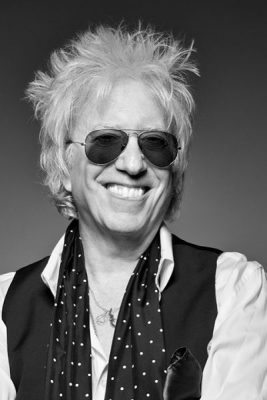
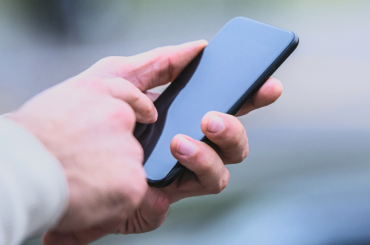
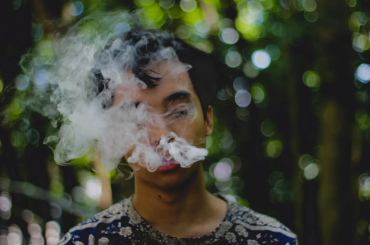
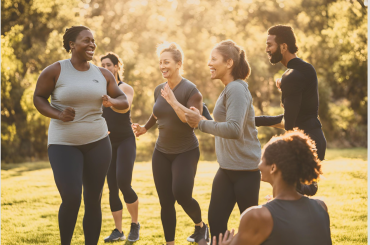
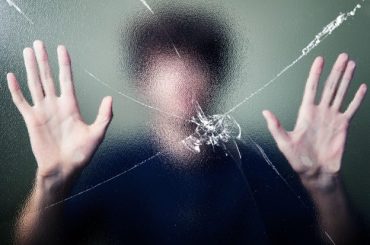
1 Comment
Wow! Good job Nicky and also to RickyByrd.it seems as if every time I turn around the 12 steps are being slamned. And you 2 go on line and actually give credit for being there. Kudos to you.